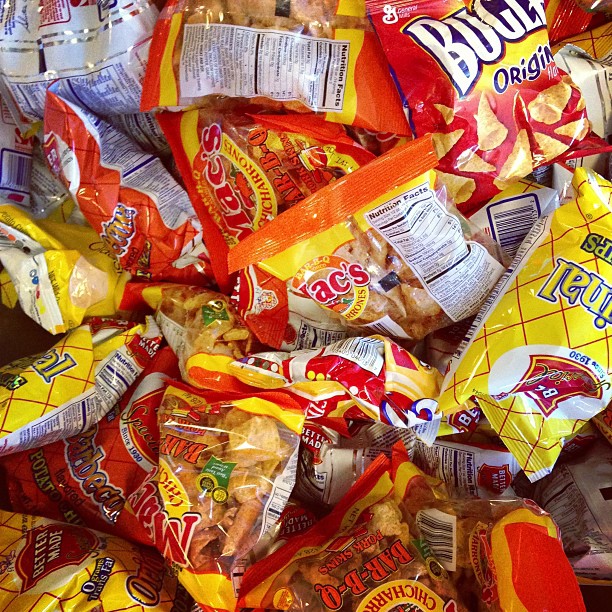
Taiwan and Southeast Asian nations are new global waste receivers after China decided to no longer take in plastic and textile waste since early 2018.
Taiwan is now importing more waste than ever, but does it mean this island nation really possesses a higher capability to process the waste? After the official announcement placing Taiwan’s waste recycling rate at 58% has been proved to be biased, many people have started to wonder where the trash goes after being thrown into bins.
Currently, there are three major categories of recyclable plastic waste being collected in Taiwan: 1. The listed items (mainly plastic containers) 2. Random plastic items 3.Clean plastic bags.
But even though municipal recycling trucks accept these objects, it doesn’t mean these materials will end up being recycled successfully.
THE WANTED TRASH
The recyclable items that waste treatment operators prefer are pure plastic containers, said He-Lin Hsieh, the secretary-general of Taiwan Watch Institute(TWI). “Those composite plastic items, such as food containers, are usually abandoned at the recycling fields, then sent to incinerators and burned with other waste.”
In fact, whether plastic items can be reused largely depends on how they were produced.
The more sophisticated they are, the harder they can be processed during recycling. A food container could be made of more than 4 types of plastic components. Consider a splashy Dorito bag, the print and aluminum foil are not even plastic. Sometimes even the most advanced infrared radiation devices cannot sort these components accurately, not to mention human eyes.
Without accurate sortation, no operators will bother to buy the plastic waste for further processing especially since the price of crude oil (the key ingredient of plastic products) has plunged to a historical low point in recent years.

(The more attractive they are; The shorter their life cycle is)
However, recycling is far from enough if we seek to transform Taiwan into a plastic-free island. That is why multiple environmental NGOs spent months debating and negotiating with the Environment Protection Administration (EPA) to finalize the APMD (Action Plan of Marine Debris Governance) in 2018.
This action plan not only comprises a key effort of collaboration between the public and private sectors but it also explicitly outlines the agenda and lists the regulations that will steadily move Taiwan towards plastic-free before 2030. This is the first comprehensive guide since EPA pulled off the restrictions on the use of plastic bags 17 years ago.
This latest agenda is also controversial. Environmentalists argue that it is unreasonable to require 12 years to ban something eternally detrimental to the very ecosystem that supports human and animal life. On the other hand, plastic-centric convenience is deeply ingrained in Taiwanese consumption culture. Life without straws and plastic bags is unimaginable for many customers.
(Starting from take-out culture; Additional charge to discourage use)
THE EPIDEMIC IMPACT
“At first, we proposed to ban all the single-use plastic before 2022,” said Nin Yen, plastic-reduction project lead at Greenpeace Taiwan. “But what we were discussing is a revolution to the extreme dependence of plastic bags and utensils in Taiwanese culture.” The customers and government need time, so do the manufacturers.
According to her, the long-haul between the two governmental initiatives on plastic restrictions partly derives from ignorance, but the large scale of protests following the first wave of restriction is the major reason.
That is why introducing the voice from society is crucial this time. Last year, before the plan was released, the EPA representatives even visited several plastic factories in the south to inform them about the upcoming change. The new policy is expected to have profound effects on the entire industry.
“Things haven’t been settled yet,” added Yen. Since this action plan is only a guide, every restriction listed requires hearings and administrative procedures in order to be enforced. “But even if the government leadership changes in 2 years and fails to fulfill its promise, we are definitely granted to urge them to take actions based on this plan.
AS SIMPLE AS THAT
Starting from this summer, many customers will find that straws are no longer available when they dine at the fast food restaurants like Mcdonald’s, and fewer shops will provide plastic bags for free.
Will the changes cause some inconvenience? Probably yes. But don’t forget that lots of convenience we have been enjoying in the modern world is at the cost of countless innocent wildlife and the happiness of our next generation. It might take 12 years for the government to effectively enforce regulations, but it can take only one month for us to learn to be responsible customers.
One thing is for sure, “Every time you spend money, you’re casting a vote for the kind of world you want” – Anna Lappé.
By Chris Chang for Collective Green
